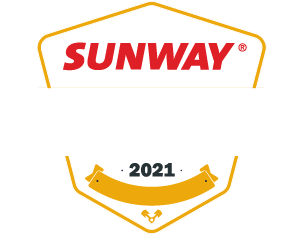TOGETHER WE BUILD A BETTER FUTURE FOR SUNWAY MALLS
WHY JOIN SUNWAY MALLS CHALLENGE?
DEVELOP A RESILIENT
GROWTH MINDSET
CONTRIBUTE TO THE
FUTURE OF SUNWAY MALLS
TO INNOVATE
CAREER PROGRESSION
CHALLENGES
ONLINE TO OFFLINE (O2O)
How can Malls’ attract ‘Golden Age’ shoppers and elevate their experience?
Demographic changes are propelling shopping malls to take a fresh look at a group of shoppers who are often ignored: the elderly. Statista showed that Malaysia will cross 15% population of those above 65 years by 2030.
Retailers have always been targeting the young, but the communication to this growing segment of aged 50 and above must not be ignored. For this segment, shopping is a means of socialisation and regular social interaction is recognized as a key element in maintaining both mental and physical well being, leading to more emphasis on health and wellness consumption.
Price is a valuable data point as mature shoppers are more incentivised by discounts than the younger customer segment. As such, there are implications and potential action points for the retail industry to create aspirational shopping spaces for older shoppers such as to innovate mall infrastructure, offer goods and services through targeted brand management.
FUTURE MARKET
The future of the mall business will be a co-sharing model. How can shopping malls incorporate this model and harness potential revenue?
The co-sharing model started to boom in Malaysia in the recent years with the pandemic has further accelerating its growth. Co-Working Spaces, Cloud Kitchens, E-Hailing, Food Delivery, Co-retailing, etc are several key examples where businesses are reimagined. The Malaysian Reserve reported that co-working spaces will continue to grow 30-40% yearly post-COVID-19 with food delivery forecasted to grow by 18% from 2018 – 2025, resulting in the booming of Cloud Kitchens. With this shift, how can shopping malls craft its business models? Potential areas to consider include Lease Agreement, Resource Sharing, Provisions/Cost Management, Rental Structure and Building Structure.
OPERATIONAL EFFICIENCY
A large majority of malls’ rental is collected based on the Monthly Gross Sales Turnover (MGST) structure. How can malls track the sales generated from stores in totality?
The biggest challenge that landlords face with the MGST rent structure is the leakage of profit from the undeclared sales where landlords are unable to track transactions from food delivery, online store fulfilment, marketplaces fulfilment and more. With the high percentage of sales being collected by these platforms, many retailers are unwilling to reveal the profit generated. Payments via e-wallets are also a challenge to track, especially for retailers who have registered accounts through HQ or other outlets. All of these transactions are important and should be contributed to the MGST collection. How are shopping malls able to overcome this challenge?
SUSTAINABILITY
Share how Sunway Malls can transform into a sustainable business by incorporating sustainable practices for a better future.
Sustainability is a key business approach in creating long-term value by taking into consideration of how an organisation operates in the ecological, social and economic environment, as well as important aspects related to peace, justice and effective management. A study done by IBM in 2020 showed that nearly 60% of consumers were willing to change their shopping habits to reduce environmental impact and nearly 80% said that sustainability is important (Forbes, 2020). Unfortunately, the retail industry still imbued with sustainability issues where it’s inherently a use-and-dispose economy rather than a circular economy. Sunway Malls sees this gaining traction as society demands and places emphasis on more sustainable practices. As consumers are shifting to this direction, Sunway Malls decided to embark on a project to raise awareness among their shoppers retailers are gearing there too. While all this is happening, Sunway Malls, the place where retailers and consumers meet, should align with it’s stakeholders through ideas such as transforming into an environmental hub, efforts in recycling waste, and urban farming. Committing to sustainability will secure the success of our business while contributing to a greener future.
AWARDS






ANY MORE QUESTIONS?
sunwaymallsid@sunway.com.my
Turn your idea into reality
TOGETHER WE BUILD A BETTER FUTURE FOR SUNWAY MALLS
WHY JOIN SUNWAY MALLS CHALLENGE?

DEVELOP A RESILIENT
GROWTH MINDSET

CONTRIBUTE TO THE FUTURE
OF SUNWAY MALLS

GAIN SKILLSETS TO INNOVATE

CAREER PROGRESSION

WIN ATTRACTIVE PRIZES
CHALLENGES

ONLINE TO OFFLINE (O2O)
How can Malls’ attract ‘Golden Age’ shoppers and elevate their experience?
Demographic changes are propelling shopping malls to take a fresh look at a group of shoppers who are often ignored: the elderly. Statista showed that Malaysia will cross 15% population of those above 65 years by 2030.
Retailers have always been targeting the young, but the communication to this growing segment of aged 50 and above must not be ignored. For this segment, shopping is a means of socialisation and regular social interaction is recognized as a key element in maintaining both mental and physical well being, leading to more emphasis on health and wellness consumption.
Price is a valuable data point as mature shoppers are more incentivised by discounts than the younger customer segment. As such, there are implications and potential action points for the retail industry to create aspirational shopping spaces for older shoppers such as to innovate mall infrastructure, offer goods and services through targeted brand management.

FUTURE MARKET
The future of the mall business will be a co-sharing model. How can shopping malls incorporate this model and harness potential revenue?
The co-sharing model started to boom in Malaysia in the recent years with the pandemic has further accelerating its growth. Co-Working Spaces, Cloud Kitchens, E-Hailing, Food Delivery, Co-retailing, etc are several key examples where businesses are reimagined. The Malaysian Reserve reported that co-working spaces will continue to grow 30-40% yearly post-COVID-19 with food delivery forecasted to grow by 18% from 2018 – 2025, resulting in the booming of Cloud Kitchens. With this shift, how can shopping malls craft its business models? Potential areas to consider include Lease Agreement, Resource Sharing, Provisions/Cost Management, Rental Structure and Building Structure.

OPERATIONAL EFFICIENCY
A large majority of malls’ rental is collected based on the Monthly Gross Sales Turnover (MGST) structure. How can malls track the sales generated from stores in totality?
The biggest challenge that landlords face with the MGST rent structure is the leakage of profit from the undeclared sales where landlords are unable to track transactions from food delivery, online store fulfilment, marketplaces fulfilment and more. With the high percentage of sales being collected by these platforms, many retailers are unwilling to reveal the profit generated. Payments via e-wallets are also a challenge to track, especially for retailers who have registered accounts through HQ or other outlets. All of these transactions are important and should be contributed to the MGST collection. How are shopping malls able to overcome this challenge?

SUSTAINABILITY
Share how Sunway Malls can transform into a sustainable business by incorporating sustainable practices for a better future.
Sustainability is a key business approach in creating long-term value by taking into consideration of how an organisation operates in the ecological, social and economic environment, as well as important aspects related to peace, justice and effective management. A study done by IBM in 2020 showed that nearly 60% of consumers were willing to change their shopping habits to reduce environmental impact and nearly 80% said that sustainability is important (Forbes, 2020). Unfortunately, the retail industry still imbued with sustainability issues where it’s inherently a use-and-dispose economy rather than a circular economy. Sunway Malls sees this gaining traction as society demands and places emphasis on more sustainable practices. As consumers are shifting to this direction, Sunway Malls decided to embark on a project to raise awareness among their shoppers retailers are gearing there too. While all this is happening, Sunway Malls, the place where retailers and consumers meet, should align with it’s stakeholders through ideas such as transforming into an environmental hub, efforts in recycling waste, and urban farming. Committing to sustainability will secure the success of our business while contributing to a greener future.
PROGRAMME OUTLINE

10 JUNE
LAUNCH

14 JUNE – JULY 9
REGISTRATION

28 JUNE – 16 JULY
IDEA SUBMISSION

2 AUGUST
FINALIST ACCOUNCEMENT

3 AUGUST – 16 AUGUST
1-DAY FOCUS GROUP WORKSHOP

17 AUGUST – 27 AUGUST
REVISED PROPOSAL SUBMISSION

30 AUG – 13 SEP
PROJECT SELECTION

SEPTEMBER
TEAM FORMATION & RESOURCE ALLOCATION

SEPTEMBER onwards
PROJECT DEVELOPMENT
AWARDS






TOGETHER WE BUILD A BETTER FUTURE FOR SUNWAY MALLS
WHY JOIN SUNWAY MALLS CHALLENGE?
DEVELOP A RESILIENT GROWTH MINDSET
DEVELOP A RESILIENT GROWTH MINDSET
DEVELOP A RESILIENT GROWTH MINDSET
DEVELOP A RESILIENT GROWTH MINDSET
DEVELOP A RESILIENT GROWTH MINDSET
CHALLENGES

ONLINE TO OFFLINE (O2O)
Demographic changes are propelling shopping malls to take a fresh look at a group of shoppers who are often ignored: the elderly. Statista showed that Malaysia will cross 15% population of those above 65 years by 2030. Retailers have always been targeting the young, but the communication to this growing segment of aged 50 and above must not be ignored. For this segment, shopping is a means of socialisation and regular social interaction is recognized as a key element in maintaining both mental and physical well being, leading to more emphasis on health and wellness consumption.
Price is a valuable data point as mature shoppers are more incentivised by discounts than the younger customer segment. As such, there are implications and potential action points for the retail industry to create aspirational shopping spaces for older shoppers such as to innovate mall infrastructure, offer goods and services through targeted brand management.

FUTURE MARKET
The co-sharing model started to boom in Malaysia in the recent years with the pandemic has further accelerating its growth. Co-Working Spaces, Cloud Kitchens, E-Hailing, Food Delivery, Co-retailing, etc are several key examples where businesses are reimagined. The Malaysian Reserve reported that co-working spaces will continue to grow 30-40% yearly post-COVID-19 with food delivery forecasted to grow by 18% from 2018 – 2025, resulting in the booming of Cloud Kitchens. With this shift, how can shopping malls craft its business models? Potential areas to consider include Lease Agreement, Resource Sharing, Provisions/Cost Management, Rental Structure and Building Structure.

OPERATIONAL EFFICIENCY
A large majority of malls’ rental is collected based on the Monthly Gross Sales Turnover (MGST) structure. How can malls track the sales generated from stores in totality?
The biggest challenge that landlords face with the MGST rent structure is the leakage of profit from the undeclared sales where landlords are unable to track transactions from food delivery, online store fulfilment, marketplaces fulfilment and more. With the high percentage of sales being collected by these platforms, many retailers are unwilling to reveal the profit generated. Payments via e-wallets are also a challenge to track, especially for retailers who have registered accounts through HQ or other outlets. All of these transactions are important and should be contributed to the MGST collection. How are shopping malls able to overcome this challenge?

SUSTAINABILITY
Sustainability is a key business approach in creating long-term value by taking into consideration of how an organisation operates in the ecological, social and economic environment, as well as important aspects related to peace, justice and effective management. A study done by IBM in 2020 showed that nearly 60% of consumers were willing to change their shopping habits to reduce environmental impact and nearly 80% said that sustainability is important (Forbes, 2020). Unfortunately, the retail industry still imbued with sustainability issues where it’s inherently a use-and-dispose economy rather than a circular economy. Sunway Malls sees this gaining traction as society demands and places emphasis on more sustainable practices. As consumers are shifting to this direction, Sunway Malls decided to embark on a project to raise awareness among their shoppers retailers are gearing there too. While all this is happening, Sunway Malls, the place where retailers and consumers meet, should align with it’s stakeholders through ideas such as transforming into an environmental hub, efforts in recycling waste, and urban farming. Committing to sustainability will secure the success of our business while contributing to a greener future.
AWARDS






